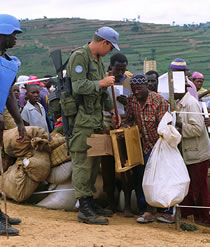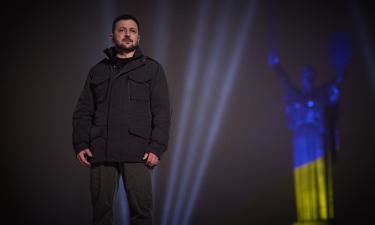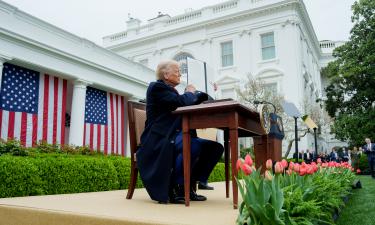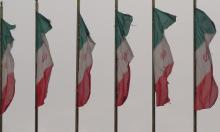NATO increases more help for African peacekeepers in Sudan
NATO is considering increased help to African peacekeepers in Darfur in response to mounting U.S. pressure for an intensified international effort to halt the ethnic violence ravaging the Sudanese region, but officials say there are no plans for a major deployment of allied troops. Diplomats at allied headquarters Monday confirmed that discussions are underway for NATO to boost training, transport and planning assistance to the African Union peacekeeping force of 7,000 which has failed to halt the violence blamed for a humanitarian disaster which has killed an estimated 180,000 people.

U.S. President George W. Bush called NATO's Secretary General Jaap de Hoop Scheffer Friday to discuss the issue. On the same day, Bush told an audience in Tampa , Florida , the peacekeeping mission should be doubled in size and given more help from the Western alliance. "It's going to require a, I think, a NATO stewardship, planning, facilitating, organizing, probably double the number of peacekeepers that are there now, in order to start bringing some sense of security," Bush said.
Also Friday, two U.S. senators introduced a resolution in Washington calling on NATO to send troops and impose a no-fly zone over Darfur . "Adding NATO's experience and expertise to the African effort would quickly improve security, save lives and allows thousands of refugees to return to their homes. NATO should deploy troops," said Sen. Joseph R. Biden who introduced the resolution along with Sen. Sam Brownback.
However, NATO officials say political sensitivities will probably mean that the alliance's role will, for the time being at least, prevent the dispatch of large number of European or North American troops. They point out that any NATO deployment would need a United Nations request, with backing from Russia , China and the African Union,which has stressed a preference for an African solution to the conflict.
"NATO has not received any formal request from the UN or from the AU for anything beyond what it is currently doing," said NATO spokesman James Appathurai. "NATO is continuing to do what it has been doing for many months, and that is airlifting in and out African Union battalions ... as well as providing training."
NATO is looking at how it could do more as the United Nations prepares to take over direct responsibility for the peacekeeping force from the poorly equipped and funded African Union force. The Security Council this month approved a U.N. takeover of the mission and the U.N.'s top official in Sudan , Jan Pronk, has said that could see the force expanded to up to 20,000.
However, NATO military officials say there is little enthusiasm among European allies for a full scale NATO mission and the United Nations is expected to continue to use African troops to provide the bulk of the peacekeeping force, albeit with increased back up from NATO. Although a high-powered western force could be more effective militarily, many fear the political fallout, particularly if the mainly Muslim Sudanese government opposes a NATO deployment, reports the AP.
N.U.
Subscribe to Pravda.Ru Telegram channel, Facebook, RSS!




